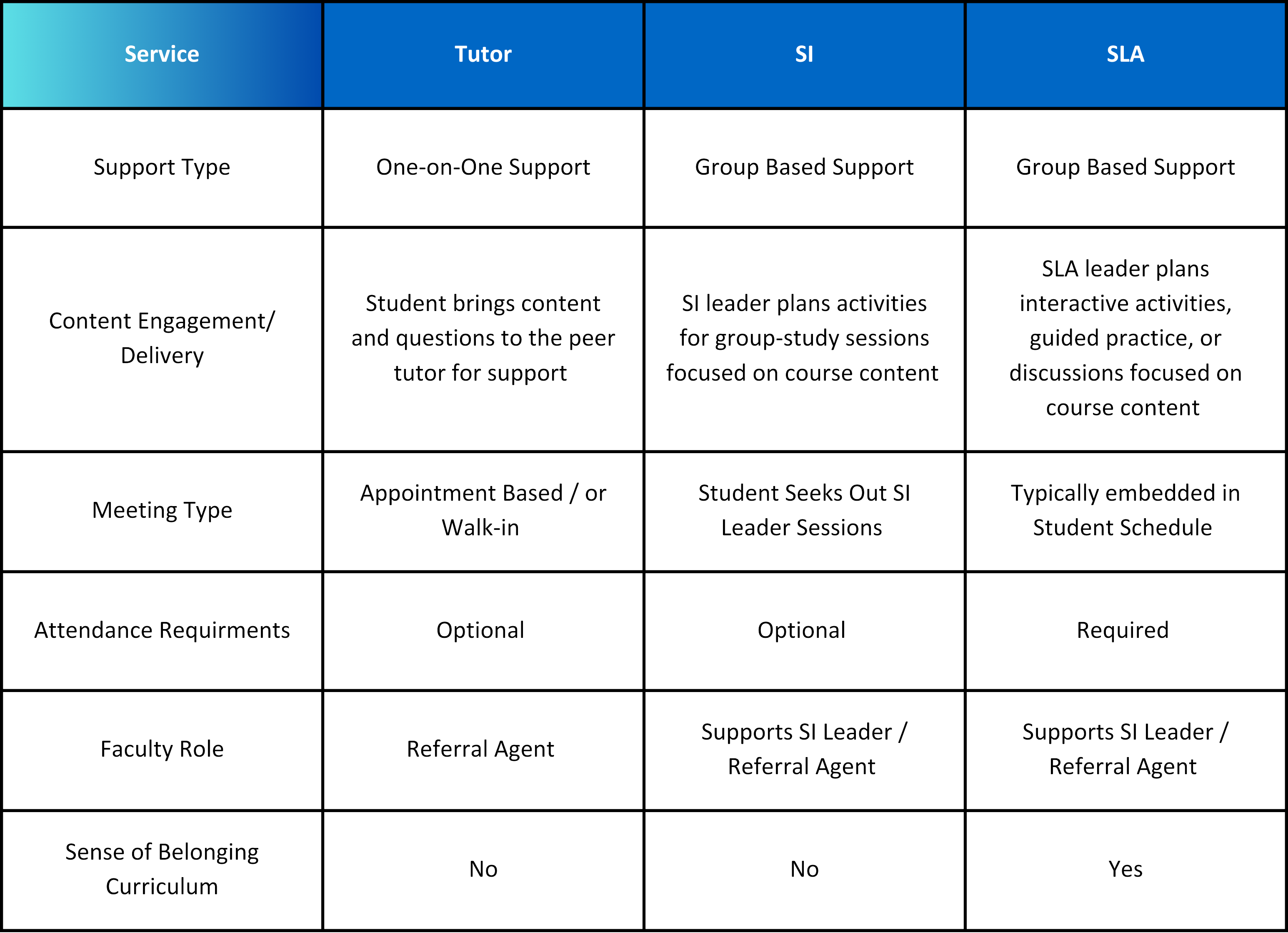Structured Learning Assistance
What is Structured Learning Assistance?
Structured Learning Assistance is a peer-led academic support program seamlessly integrated into a student's schedule. It is designed to provide accessible assistance within a student's daily class schedule, removing the added burden of seeking support services in their free time.
This type of assistance is typically characterized by the following elements:
- Clear Objectives: Each session or module has specific learning goals that align with broader course objectives.
- Scheduled Sessions: Assistance is provided according to a pre-determined schedule, which can help students manage their time effectively.
- Focus on Active Learning: Techniques that promote active participation are employed, such as discussions, problem-solving tasks, and group activities.
- Integration with Course Content: The assistance is directly linked to the content of the courses students are taking, enhancing comprehension and retention.
- Assessment and Feedback: Regular informal and formative assessments and timely feedback helps track student progress and assists in identifying areas where more support is needed.

What is Sense of Belonging, Really?
When students have a sense of belonging on campus, it means that they feel integrated and connected to their peers, faculty, and staff, they feel supported by their peers, faculty, and staff, they relate to and identify with the institution’s values, and finally, they feel recognized, seen, heard, and acknowledged. Educational researchers and institutions often use these aspects to assess and improve student integration, retention, and success.
- Social Integration: This involves students feeling that they are a part of the college community. This can include connections with peers, faculty, and staff, as well as involvement in campus activities.
- Perceived Support: A sense of belonging often incorporates the idea that students feel supported by the institution, their peers, and their professors, both academically and personally.
- Alignment with Institutional Values: Students often feel a greater sense of belonging when they perceive that their values align with the institution's values.
- Recognition and Acknowledgment: Another crucial component is feeling recognized and valued for one's contributions and presence in the academic community.
- Academic Engagement and Commitment: Belonging in a higher education context also relates to students’ engagement with their studies and their perception of the relevance of their education to their personal as well as career goals.